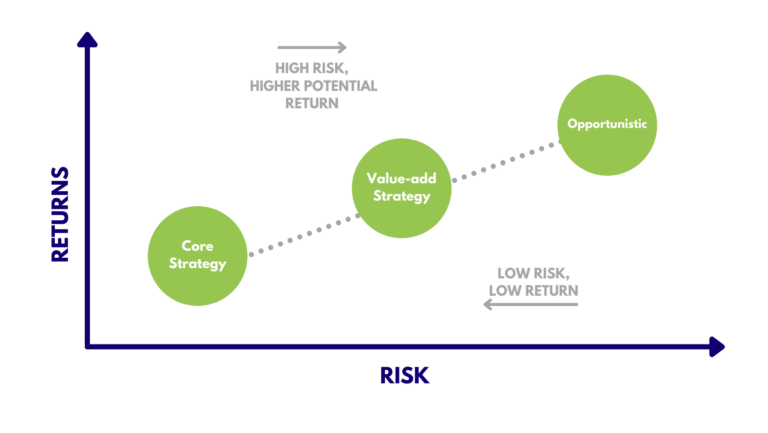March 11, 2021
Camelback Flats: A Study in Value-Add Strategy
Building a real estate portfolio has many nuances. Ultimately, you are looking for the best opportunities available. One of the cornerstone investment strategies of MLG Capital is called the “value-add strategy”. In other words, we try to turn coal into diamonds for our investors; hopefully, with a lot less pressure and time needed. Value-add can have a multitude of meanings depending on who you ask. For us, we strive to create value by increasing the operational income of an asset. That can generally include correcting inefficiencies in property management, increasing the occupancy of the asset, or growing rents via improvements to property interiors or exteriors. The transformation of Sienna Springs Apartments is a great story in which we were able to create value. The property, 395 units in total, is located in one of our favorite growth markets: Phoenix, AZ. Phoenix is a market that outperforms the national average for market rent growth. According to RealPage, market rents in north central Phoenix are forecasted to grow 4% annually from 2021 through 2024 with occupancy forecasted to remain stable at 95%. It’s also a great market to escape to during the cold Wisconsin winters. On top of the strong growth market, the opportunity to purchase Sienna Springs Apartments checked all the boxes for our value-add strategy: The property presented an opportunity to correct deferred maintenance via an exterior rebrand; this included landscaping and common area upgrades to garner a larger tenant base The asset was built in 1970’s and the unit interiors were largely un-renovated from the original finishes The ability to partner with a sponsor with...
March 4, 2021
Why You Should Consider Investing in Private Real Estate
Perhaps you’ve thought about diversifying your traditional portfolio and considered real estate as a potential solution. Or, maybe you’re only familiar with real estate investment trusts (REITs) as a form of real estate investing. The world of private real estate provides new, and in my opinion, strategic alternatives compared to simply investing in public REITs. In a world where everything feels like it’s been turned upside down, many investors take comfort in the familiarity and ease of stocks and bonds, but they may miss out on the opportunities and benefits private real estate offers. It’s been my experience that investors recognize the advantages to private real estate but are apprehensive to take the jump into investing due to the unfamiliarity of it. Investing in private real estate may offer benefits you may not find in a portfolio made up of REITS, stocks and bonds alone: Diversification Low correlation to public markets and less volatility Tax-deferred income Cash flow and long-term appreciation Let’s take a deeper dive: DIVERSIFICATION Geographic, asset type, and real estate manager diversification is a key part in creating a successful investment portfolio, as it has the potential to shield investors from added risk, and it can also preserve an investor’s capital. Many private real estate investments are done on a local basis, primarily investing in their local communities. Don’t get me wrong, this is great for the local market and community, but it doesn’t help to diversify an investment portfolio across asset classes and markets. With a private real estate fund, investors may be exposed to various...
February 16, 2021
4 Considerations to Optimize Asset Allocation in Your Investment Portfolio
The key to achieving optimal allocation for any investor’s portfolio is to find a productive balance between risk and return. Accredited investors benefit from a wide range of investment options in the alternative space, which plays an important role in meeting the criteria of proper asset allocation. But before you jump into details, charts or percentages, it is important to familiarize yourself with some of the concepts of optimal asset allocation and consider how private real estate can help you meet your personal investment goals. Remember, it’s important to consult with your personal tax advisor, money manager, or attorney as needed. First things first: What’s your investment objective? Your investment objective answered the question, “what are you looking to accomplish with your investments?” When we talk about risk vs. return, the general rule of thumb is the higher the risk level, the higher the potential returns can be. There are strategies that align well with an aggressive investment objective, which have a potential for a higher return because they carry more risk. On the other hand, a conservative approach takes on less risk but can provide steady returns over time, even if lower than a higher risk strategy. The graphic below provides a...
February 2, 2021
4 Major Differences Between REITs and Private Real Estate Investments Every High Net Worth Investor Should Know
A REIT, or Real Estate Investment Trust, is a company owning or financing income-producing real estate. Private real estate investing is the use of private individuals’ money (not a corporation’s funds) to purchase privately held real estate assets, usually for meant commercial use. Both REITs and private real estate investments are organized pools of capital invested in real estate. REITs are often publicly traded, and therefore can be more liquid. Private real estate can have much higher minimums to invest and typically are offered to accredited persons. REITs typically have a low investment threshold, while the minimums are typically higher for private real estate investments since there are fewer people investing per project. REITs are valued every day just like a stock, so they typically have a high correlation to the stock market. In comparison, private real estate typically has a low correlation to the public stock market. Public stock markets do not typically cause as great a shift in the value of private real estate. Let’s dive a little deeper into each of these differences. Correlation One of the biggest differences between a REIT and private real estate investments is correlation to the public stock market exchanges and public...
December 17, 2020
Getting Started in Private Real Estate: Basic Terminology
Let’s face it: with any new venture, it’s easy to get lost in the lingo. When I entered the financial services industry after college, training and licensure felt like drinking water from a firehose. Although private real estate concepts were easy to grasp, the terms, acronyms and abbreviations made learning harder than I had expected. Later, I realized the clients we serviced felt the same way. By using this as common ground to educate them, I felt empowered to teach them how to understand these terms and show them how to take an active role in their finances. The world of private real estate investing can be intimidating and even difficult to evaluate if you are not familiar with the main concepts involved. By gaining a general understanding of how it works, you’ll be equipped to ask the right questions and to make an investment decision, even if you’re working with a financial professional. With alternative investments, there are specific regulations that you, as an investor, must know and understand. Because of my passion for financial literacy, and the fact that I’m new to private real estate myself, I’d like to outline some of the terms you will most likely hear in your conversations with investment managers and other investors. This is not an exhaustive list but should provide you with a basic understanding of various elements within our industry. Accredited Investor Because private real estate is considered an alternative investment, the SEC requires investor accreditation. An accredited investor refers to an individual or business entity that is financially sophisticated enough to assume certain investment risks. Accredited investors must satisfy income, net worth and/or professional experience. For example, to be an accredited investor, a person must have had a yearly income of at least $200,000 (or joint income of $300,000, if married) during the last two...
December 10, 2020
Should the European Equity Waterfall be the New Standard?
When evaluating a private real estate offering, an investor should take a detailed look into the investment return structure, or in other words, how you, the investor, gets paid. Alternative investments in real estate typically compensate the General Partner, sponsor or manager (like us, MLG Capital) in a form of profit participation, called a “promote”. Limited partners, (you, the investors) are typically compensated by a preferred return and a share in profits. As seen throughout the private real estate industry, return structures for investors can vary but are typically set up in two ways: American waterfall structure and European waterfall structure. What do these mean to you as an investor? How is the investment manager getting paid? Great questions. First, let’s define the basic stages of these waterfall structures. PREFERRED RETURNS Not all managers offer a preferred return (pref), but as an investor, investing in an asset with a preferred return is generally considered to be in your best interest. Pref is a return-on-investment that a private offering distributes to investors out of cash flow. The preferred return is generally paid to investors first, before a manager shares in the profits or “promote” of an investment. Most managers offering pref will...





